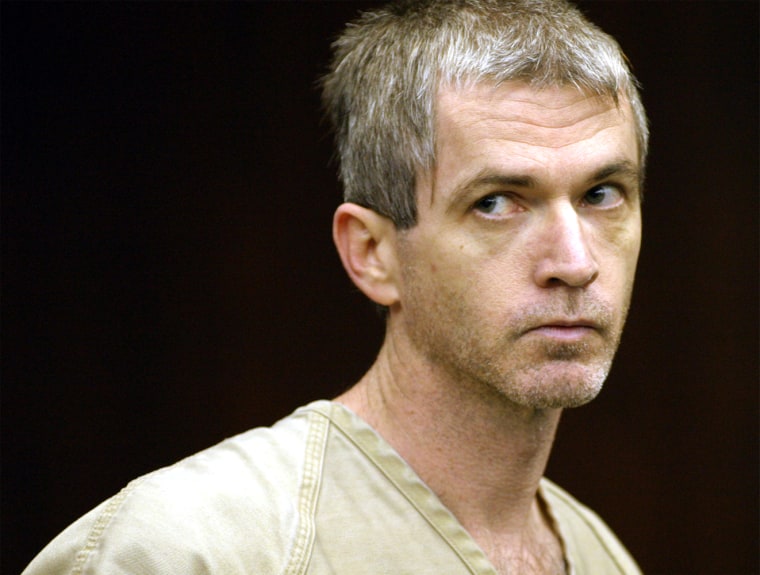A former nurse who claims to have killed as many as 40 patients over the past 16 years was fired from at least two hospitals and was even the subject of a criminal investigation. But Charles Cullen kept managing to land another job.
Authorities say the case underscores serious flaws in a system in which hospitals report only limited information about nurses to other prospective employers for fear they might get sued. A severe nursing shortage may have also played a part.
“Short of an actual conviction for a criminal act, there is nothing that needs to be reported when someone is fired,” said Dr. William Cors, Somerset Medical Center’s chief medical officer. “That needs to change.”
Cullen, 43, is charged with murdering a Roman Catholic clergyman and attempting to kill another patient at Somerset Medical Center. More charges could follow after prosecutors complete their investigation of Cullen’s claims that he killed 30 to 40 patients at nine hospitals and a nursing home in New Jersey and Pennsylvania.
Prosecutors say he gave the seriously ill patients lethal drug overdoses to end their suffering.
Despite Cullen’s spotty record, officials at Somerset had found nothing wrong after checking his credentials. That is because most hospitals will only confirm the dates of employment for a former worker, and will not make a positive or negative recommendation.
References were checked
“We validated that he had an active New Jersey nursing license,” Cors said. “We had reference checks from a previous employer. It was your standard ‘He worked from this date to that date’ without any recommendation either way.”
Similarly, Donna Leusner, a spokeswoman for the state Department of Health and Senior Services, said hospitals are only required to report to the state agency suspicions of criminal activity that endangers the lives of patients or employees.
Cors said the health-care industry needs to be able to share information about fired workers, either through voluntarily changing reference policies, or through legislation compelling hospitals to do so. Somerset officials have already spoken with several New Jersey legislators asking for new laws to improve reporting requirements on fired workers.
“It’s not acceptable to be so afraid of our shadows that we can’t pass along information of concern because we’re afraid of getting sued,” Cors said.
Cullen had bounced from hospital to hospital.
In August 1997, he was fired from Morristown Memorial Hospital for “poor performance,” said Joan Lebow, a spokeswoman for the hospital’s parent corporation.
He worked at Sacred Heart Hospital in Allentown, Pa., for only two weeks in July 2002 before being fired for “interpersonal problems with existing employees.”
Sacred Heart spokesman Chris Sodl said hospital officials had checked his references before hiring him, but in most cases, all they learned were the dates of his employment.
“If somebody called here, that’s what we would do, too,” Sodl said. “We would give their dates of employment, and nothing else. It is basically a confidentiality issue.”
In some instances, previous employers recommended Cullen. A spokesman for St. Luke’s Hospital in Bethlehem, Pa., where Cullen worked from June 2000 to June 2002, said the hospital got positive references from Lehigh Valley Hospital and Liberty Nursing home in Allentown.
Cullen was later removed from patient contact at St. Luke’s after two unopened heart medications were found hidden in a hypodermic needle disposal bin in June 2002. He quit rather than cooperate with the inquiry, hospital spokesman Susan Schantz said.
Simultaneously, a nurse at the hospital complained to prosecutors that she suspected that Cullen had been involved in “inappropriate medication of patients,” according to Lehigh County, Pa., prosecutor James Martin. Authorities reviewed the records of 67 patients who died in the coronary care unit in the last six months of Cullen’s employment but found no evidence of wrongdoing.
Martin sent a letter to the hospital on May 28, informing it that the investigation was closed. The hospital said it notified the Pennsylvania nurse licensing board about its concerns regarding Cullen.
Allegations remained secret
A board spokesman said such allegations remain secret from prospective employers unless they result in formal disciplinary action — and that did not occur in Cullen’s case.
The Pennsylvania board is now moving to revoke Cullen’s license. As of Tuesday, New Jersey had not taken any action against Cullen’s license.
The nationwide nursing shortage also may have helped Cullen get so many jobs.
Hospitals and other health care institutions compete fiercely for nurses, offering cash bonuses and even recruiting overseas. More than 30 states are grappling with a shortage estimated at 136,000 nurses.
“The nursing shortage doesn’t make it easier to do the right thing,” Cors said. “If someone shows up at your hospital and says, ‘Guess what? I’ll work the overnight shift in your ICU,’ most places would be hard-pressed to say no to that.”
